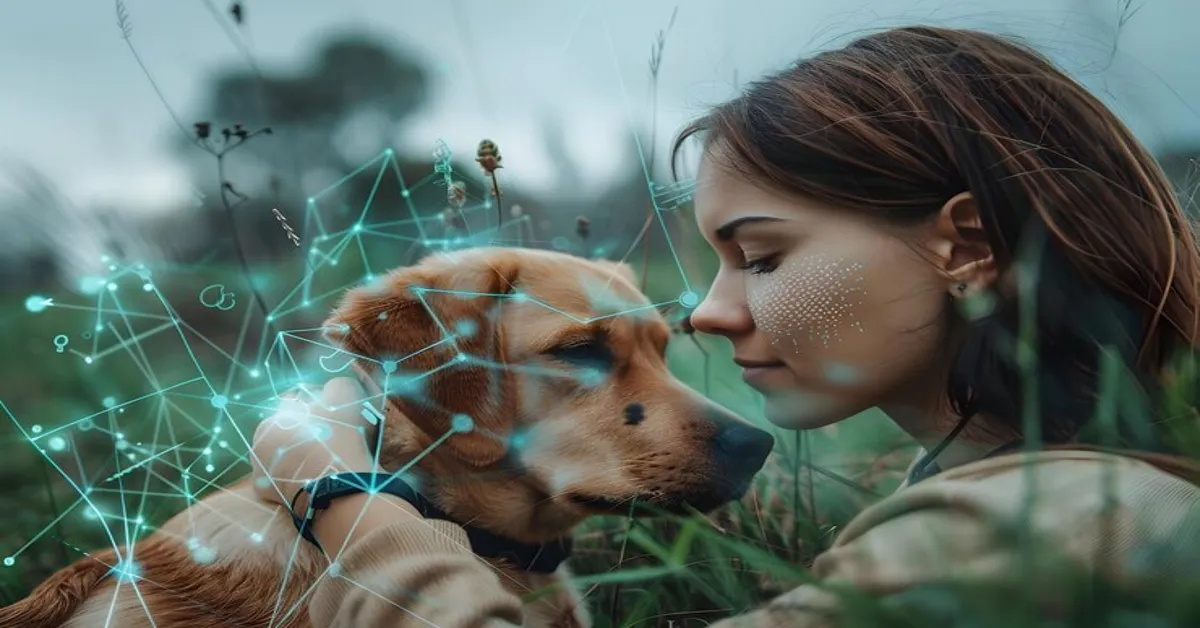In an era where the boundaries between the physical and digital continue to erode, the emergence of personas such as Puppygirlxd presents a fascinating intersection of self-expression, identity exploration, internet culture, and performance art. While the term “Puppygirlxd” may seem niche or sensational at first glance, it exemplifies a broader and increasingly relevant trend: the creation of hyper-stylized online identities that both reflect and challenge contemporary understandings of authenticity, agency, and community.
This article aims to take a deep dive into the cultural significance of the Puppygirlxd persona, dissecting its roots, relevance, and the broader implications it has for how we understand ourselves in the digital age.
The Rise of Digital Personas
From the earliest days of online chatrooms to the viral dominance of TikTok creators, digital avatars and screen names have served as masks and mirrors. For many, these aliases were simple pseudonyms. For others, they became evolving representations of identity, aspiration, or rebellion. Puppygirlxd fits into this lineage of digital personae, embodying a character that blends performance with sincerity, provocation with vulnerability.
The persona of Puppygirlxd reflects a playful, exaggerated, and often performative online character. The name itself carries linguistic cues typical of internet culture—the “xd” denotes an emoticon used to express laughter or irony, while “puppygirl” taps into a subcultural aesthetic tied to pet play, cosplay, and affectionate role dynamics.
Yet what distinguishes Puppygirlxd from many others is not merely aesthetic. It’s the nuance of self-aware performance: the conscious decision to turn the lens on oneself, and to transform that gaze into a source of interaction, entertainment, and revenue.
Read: MGJinx: Rethinking Prediction Beyond Algorithms
A Lens Into Subculture and Self-Expression
Puppygirlxd represents more than a quirky TikTok trend or an internet oddity. It reflects a convergence of trends that have been decades in the making: the mainstreaming of kink and fetish subcultures, the monetization of personal branding, and the shifting definitions of authenticity in the age of curated online life.
The persona exists at the overlap of various digital subcultures—including pet play, anime fandom, and meme culture—and it uses the tools of virality to both challenge and expand what is considered acceptable or interesting online. Unlike anonymous usernames of the past, figures like Puppygirlxd invite audiences into curated intimacy. There’s a layer of performative vulnerability that mirrors the confessional style of popular YouTubers or Instagram influencers, albeit through a distinct and often controversial lens.
The popularity and fascination with such figures stem not only from novelty but from their embodiment of postmodern identity: fragmented, performative, ironic, and deeply tied to the audience’s gaze.
Monetizing Identity and the Creator Economy
In 2025, identity is no longer static. It is fluid, commodifiable, and audience-driven. Puppygirlxd is emblematic of how internet personas now function within the creator economy.
Through platforms like OnlyFans, TikTok, Patreon, and Instagram, creators monetize visibility and performance. This isn’t new—celebrities have long profited from crafted personas. What is new, however, is the level of access and agency available to individuals. A persona like Puppygirlxd can bypass traditional media gatekeepers and build an entire career from direct-to-audience interaction.
But with this opportunity comes complex questions. How do creators maintain boundaries between their performed selves and their private lives? What are the psychological implications of commodifying vulnerability or play? And how does the algorithm incentivize certain kinds of behaviors, aesthetics, or identities?
Puppygirlxd, in embracing a niche identity, benefits from hyper-engaged communities. But it also raises questions about audience expectation, parasocial dynamics, and the sustainability of digital performance.
The Question of Authenticity
One of the most enduring criticisms levied at internet personas is the idea of inauthenticity. Critics often dismiss characters like Puppygirlxd as attention-seeking, shallow, or inauthentic. But such critiques often fail to grasp the complexity of digital identity.
What does authenticity mean in a world where everyone is performing to some degree? Social media inherently demands curation. The difference between an influencer showing their morning routine and Puppygirlxd crawling around in costume lies less in sincerity and more in aesthetic frame.
In fact, one could argue that personas like Puppygirlxd offer a more honest view of internet culture. They expose the theatricality of social media, highlighting the blurred line between self and spectacle. When performance is transparent, it becomes a mirror rather than a mask.
Gender, Power, and Online Play
Much of the discussion around Puppygirlxd also intersects with conversations on gender, power dynamics, and sexual autonomy. Critics may label such personas as regressive or problematic, especially when they evoke submissive imagery. But this lens, while important, must also contend with the autonomy of creators.
Digital platforms provide space for individuals to explore and perform identity on their own terms. For many, personas like Puppygirlxd represent a reclaiming of agency, a way to navigate complex power dynamics through irony, role play, or satire.
Moreover, the context of such personas often shifts depending on the platform. What reads as provocative on TikTok may come across as comedic on YouTube or sincere on Patreon. These shifts reflect the flexibility and ambiguity of digital expression.
Community Reception and Cultural Feedback
Audience response plays a crucial role in shaping internet personas. Puppygirlxd thrives not in isolation but in feedback loops: comments, shares, duets, and remixes all contribute to the ongoing evolution of the persona.
These feedback loops highlight the participatory nature of internet culture. The audience isn’t just watching; they’re collaborating, shaping, and sometimes co-opting the persona. This dynamic underscores the co-creative power of digital platforms and the fluidity of cultural authorship.
Moreover, reception often reveals cultural anxieties—around sex, identity, youth, and control. The polarizing reactions to Puppygirlxd reflect broader societal discomforts and debates about online behavior, generational shifts, and freedom of expression.
The Future of Digital Identity
As virtual spaces become more immersive—with the rise of the metaverse, AI avatars, and decentralized platforms—the Puppygirlxd phenomenon offers a blueprint for understanding the complexities of identity in digital environments.
It reminds us that identity online is rarely singular. It is layered, performed, co-created, and constantly evolving. Personas like Puppygirlxd illuminate the potential of the internet as a stage, a diary, a marketplace, and a mirror.
Rather than dismiss such characters as mere spectacles, it is more fruitful to ask what they reveal about us—about our desires, fears, creativity, and contradictions. In the age of infinite scroll and algorithmic engagement, every persona is a reflection not just of the individual behind it, but of the audience who consumes it.
Conclusion: Embracing the Paradox
The cultural landscape of 2025 is complex, nuanced, and constantly shifting. Figures like Puppygirlxd are not outliers, but indicators of a broader transformation in how we relate to identity, authenticity, and digital life.
To understand Puppygirlxd is to understand a moment in time: a convergence of technology, performance, self-exploration, and cultural experimentation. It is a story not just about one person, but about all of us navigating the blurred lines between real and virtual, sincere and ironic, self and spectacle.
As we move deeper into the digital century, such stories will become more common, more layered, and more revealing. Puppygirlxd is not an anomaly. She is a harbinger.
FAQs
1. Who is Puppygirlxd?
Puppygirlxd is a digital persona known for combining elements of cosplay, roleplay, and performance art on social media platforms. Her content explores themes of identity, subculture, and internet expression in the context of modern digital communities.
2. Why is Puppygirlxd significant in online culture?
Puppygirlxd represents a growing trend of hyper-stylized internet personas that challenge traditional norms of authenticity, gender roles, and performance. Her popularity reflects the shift toward more niche, expressive, and self-aware forms of digital identity.
3. Is Puppygirlxd’s content controversial?
Yes, her content can be polarizing. It blends humor, roleplay, and subcultural aesthetics that some find empowering and others view as provocative or problematic. This contrast underscores the broader cultural debates about expression and boundaries online.
4. How does Puppygirlxd make money?
Like many internet creators, Puppygirlxd monetizes her persona through platforms like TikTok, OnlyFans, and Patreon, where she offers exclusive content, fan interaction, and community engagement. This model is part of the larger creator economy.
5. What does Puppygirlxd tell us about digital identity today?
Her persona illustrates how online identity has become fluid, performative, and co-created with audiences. Puppygirlxd serves as a case study in how people navigate self-expression, authenticity, and monetization in today’s internet culture.


